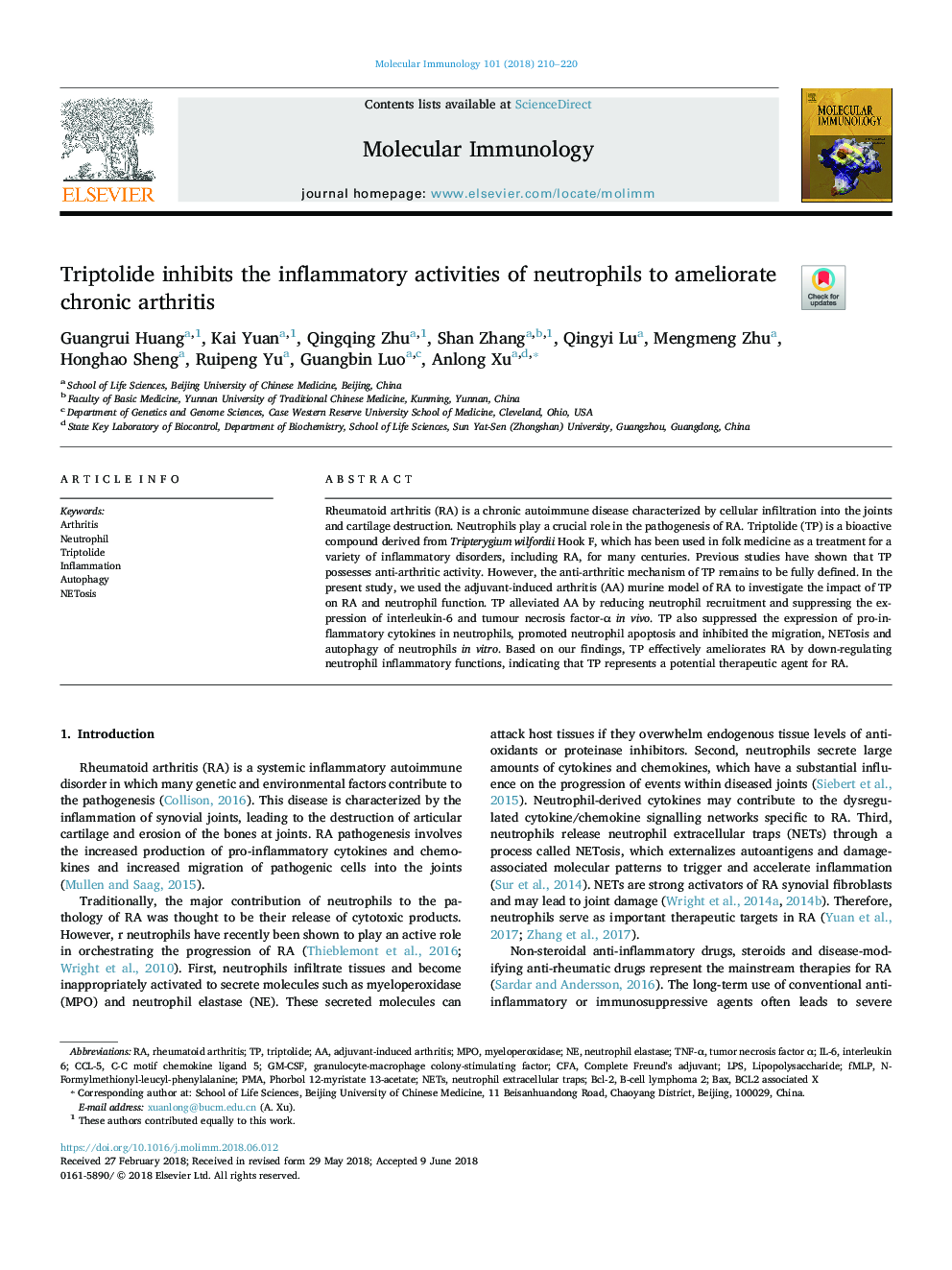| Article ID | Journal | Published Year | Pages | File Type |
|---|---|---|---|---|
| 8648417 | Molecular Immunology | 2018 | 11 Pages |
Abstract
Rheumatoid arthritis (RA) is a chronic autoimmune disease characterized by cellular infiltration into the joints and cartilage destruction. Neutrophils play a crucial role in the pathogenesis of RA. Triptolide (TP) is a bioactive compound derived from Tripterygium wilfordii Hook F, which has been used in folk medicine as a treatment for a variety of inflammatory disorders, including RA, for many centuries. Previous studies have shown that TP possesses anti-arthritic activity. However, the anti-arthritic mechanism of TP remains to be fully defined. In the present study, we used the adjuvant-induced arthritis (AA) murine model of RA to investigate the impact of TP on RA and neutrophil function. TP alleviated AA by reducing neutrophil recruitment and suppressing the expression of interleukin-6 and tumour necrosis factor-α in vivo. TP also suppressed the expression of pro-inflammatory cytokines in neutrophils, promoted neutrophil apoptosis and inhibited the migration, NETosis and autophagy of neutrophils in vitro. Based on our findings, TP effectively ameliorates RA by down-regulating neutrophil inflammatory functions, indicating that TP represents a potential therapeutic agent for RA.
Keywords
CFAN-formylmethionyl-leucyl-phenylalanineBcl2 associated XfMLPCCL-5Triptolidephorbol 12-myristate 13-acetateGM-CSFBcl-2LPSIL-6complete Freund’s adjuvantMPOPMANETsNETosisArthritisAdjuvant-induced arthritisRheumatoid arthritisAutophagyneutrophil elastaseinflammationinterleukin 6Baxneutrophil extracellular trapstumor necrosis factor αgranulocyte-macrophage colony-stimulating factorTNF-αB-cell lymphoma 2lipopolysaccharidemyeloperoxidaseneutrophil
Related Topics
Life Sciences
Biochemistry, Genetics and Molecular Biology
Molecular Biology
Authors
Guangrui Huang, Kai Yuan, Qingqing Zhu, Shan Zhang, Qingyi Lu, Mengmeng Zhu, Honghao Sheng, Ruipeng Yu, Guangbin Luo, Anlong Xu,
